The Dictatorship
Why ‘The Boys’ and ‘The Handmaid’s Tale’ became must-watch series for our political time

During Donald Trump’s first presidential term, Margaret Atwood’s “The Handmaid’s Tale,” or rather the Hulu series based on Atwood’s original novel, which just teased its sixth season for early 2025, became a shorthand symbol in the battle for reproductive rights. With its dehumanizing vision of a world that reduces women to breeding vessels held captive, abused and forced to bear childrenfor the wealthy and privileged in a repressive state,the show felt ominously, if not fantastically, aligned with where this country appeared to be heading. But as Trump prepares to re-enter the White House, I see a different streaming show that speaks more directly to this unsettling political moment: Amazon’s dystopian superhero satire “The Boys.”
Since its premiere on Amazon Prime in 2019, the series has often felt like a cautionary tale, a not-so-thinly veiled rumination on the political and media climate that laid the groundwork for Trump.
It might be easily missed behind the colorful spin on comic-book tropes and its abundant helpings of gore and kinky sex, but the series removed its mask long ago when it comes to its warnings about how a toxic stew of celebrity, hero worship and disinformation can lead to autocracy, enabled and fueled by corporate greed, corruption and lust for power.
Adapted from the comics, “The Boys” concluded its fourth season with a chilling resolution setting up its final arc, which isn’t expected to arrive until 2026. In it (and spoiler alert for those yet to take the plunge), a psychologically broken man-child, the Superman-esque Homelander (played by Antony Starr), gained control of the government and claimed sweeping powers under the guise of security and restoring order.
Since its premiere on Amazon Prime in 2019, the series has often felt like a cautionary tale, a not-so-thinly veiled rumination on the political and media climate that laid the groundwork for Trump. After the 2024 election, the similarities, even if cartoonish, feel harder to ignore.
Showrunner Eric Kripke acknowledged as much in a 2022 interview with Rolling Stone, saying that Homelander, with his volatile mix of emotional insecurity and power, had “always been a Trump analogue for me,” adding that the character reflected a “bigger issue” — namely, “the more awful public figures act, the more fans they seem to be getting.”
Leaning even more heavily into politics in its most recent season, the series added a new superhero character, Firecracker, who parrots the conservative views espoused by avery Fox News-like TV network, owned by the shadowy corporation behind the superheroes, Vought International. Kripke told Entertainment Weekly that Firecracker represents “the super extreme right-wing news media.”
Like Trump, who leveraged his carefully sculpted and edited image on “The Apprentice” as he segued into politics, “The Boys” resides in a world where Vought uses TV, movies and other media to market the “supes,” so they’re called, to the unsuspecting public.
As depicted in the series, little about the show’s underlying political message is subtle, including a conspiracy-minded group within the show that evokes QAnon. Vought meticulously exploits the gullibility of those true believers, working to blur the lines between entertainment and news under its vast corporate umbrella while wrapping Homelander and his brethren in the American flag and faux patriotism.
Indeed, the cynicism at the heart of “The Boys” is that if you can play the hero convincingly enough, it’s possible to get away with all sorts of terrible behavior.
In an ironic twist, “The Boys” has pursued this unflinching vision of autocracy and unbridled capitalism while arguably becoming Amazon Prime Video’s signature franchise, spawning spinoffs (including “Gen V”) and plans for a prequel to carry on once it’s gone. At a time when Amazon founder Jeff Bezos has drawn criticism for his decision not to endorse a presidential candidate in another asset, The Washington Post, a fanciful superhero series has forged ahead, hiding its politics in plain sight.
The cynicism at the heart of “The Boys” is that if you can play the hero convincingly enough, it’s possible to get away with all sorts of terrible behavior.
Reality intruded on “The Boys” in another way when an assassination sequence in the season finale, which premiered close to the attempt on Trump’s life in July, prompted Prime Video to change the title and add a disclaimer to the episode, which was actually filmed last year.
With “Handmaid’s Tale” due to end next year and “The Boys’” climax to follow, neither of these programs will continue long into a Trump second term. But each in their own way has spoken through fiction with anger and urgency, warning that the threat of fascism isn’t necessarily the stuff of old black-and-white images. They have also shown the ability to tackle issues in a thoughtful and provocative way, setting forth a challenge for future shows wrapped in a cloak of entertainment to pick up that colorful gauntlet.
Brian Lowry is a media columnist and critic, most recently at BLN, and before that Variety and the Los Angeles Times.
The Dictatorship
Trump wants Linda McMahon to lead the command of his war on universities
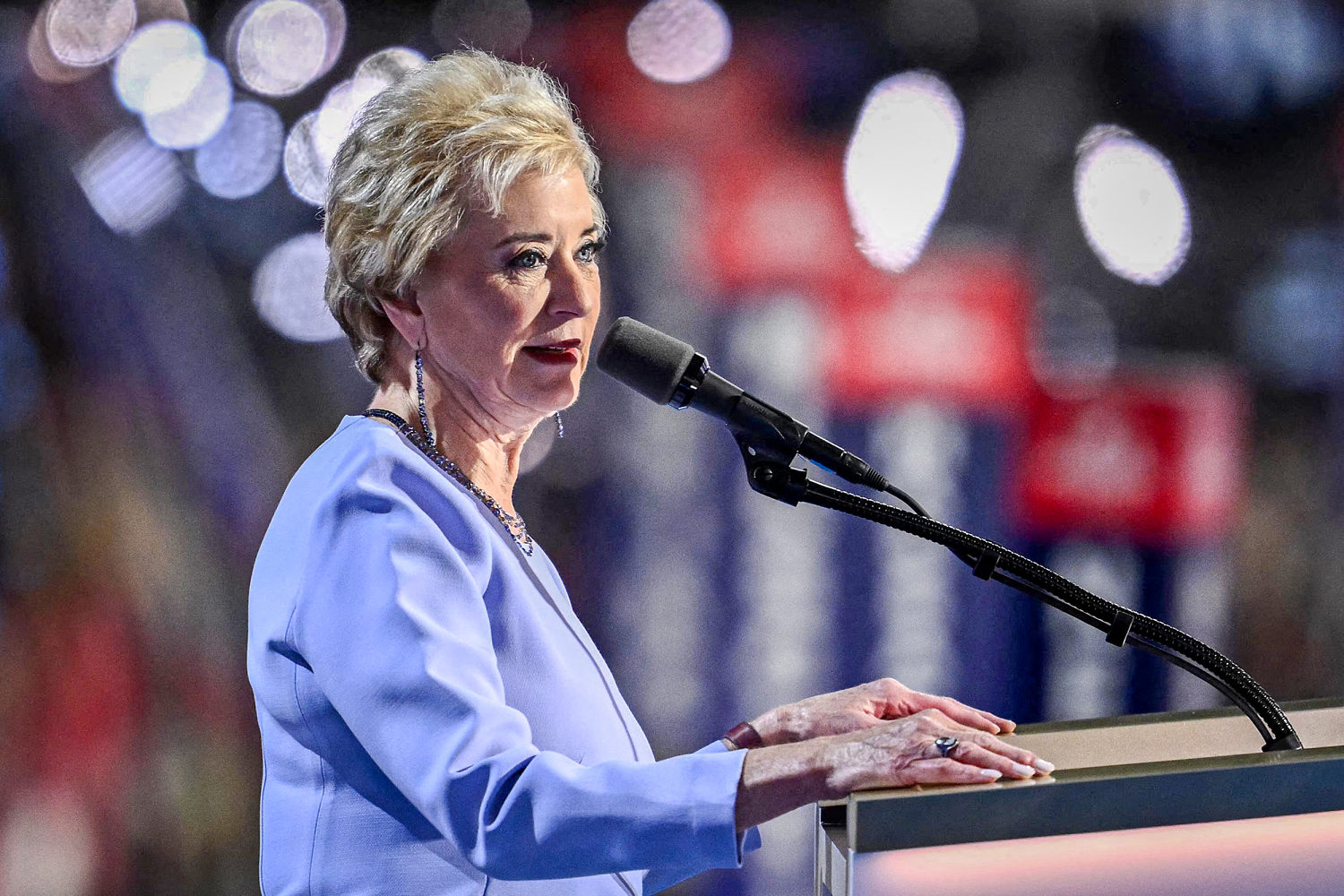
When Donald Trump announced his choice of former World Wrestling Entertainment executive Linda McMahon to lead the Department of Education, his statement shouted that with her at the helm, “We will send Education BACK TO THE STATES.” The sentence was a reference to Trump’s previous pledge to shut down the department entirely — a promise Republicans have been making since it was created in 1979.
But axing the entire department was always unlikely — not just because it would require congressional action, but because what Trump actually wants is more federal control over education, not less.
The real focus in the new Trump administration will be higher education.
Like everything else in Trump’s vision for government, he wants the department McMahon would lead to be more corrupt, more ideologically right wing and less capable of doing the job it is supposed to do. In the past, McMahon has promoted private school vouchers that drain money from public schools, and she will surely do so again. But the real focus in the new Trump administration will be higher education. The war on universities is about to begin.
This war has both practical and political purposes for the GOP. For decades, demonizing higher education has been a favorite tactic for Republicans. They believe universities stand in fundamental opposition to the right’s project, and in many ways they’re correct: Most professors are liberal, and critical inquiry often undermines conservative ideas and values.
During the campaign, Trump released a video laying out his plan to “reclaim our once-great educational institutions from the radical left.” He promised to use the “secret weapon” of accreditation, punishing schools that don’t follow his instructions by stripping them of the certification without which they might not survive. “I will fire the radical left accreditors that have allowed our colleges to become dominated by Marxist maniacs and lunatics,” he said, and replace them with Trump-approved accreditors who will bring a more MAGA-friendly approach to higher education.
Trump also said he would have the Justice Department target “schools that continue to engage in racial discrimination,” by which he clearly meant efforts to promote diversity; his allies are planning to invert the DOJ’s Civil Rights Division so it focuses on alleged anti-white racism. If universities do not meet Trump’s standard, they “will not only have their endowment taxed, but through budget reconciliation, I will advance a measure to have them fined up to the entire amount of their endowment.”
Seizing the endowments of universities would almost certainly be illegal, but Trump is spoiling for a fight, and his “secret weapon” is a powerful threat. Accreditation is vital to every university; without it, their students can’t get federal loans and they can’t receive federal research funding (more than half of university research funds come from the federal government).
This assault is already going on at the state level, where Republicans have passed laws outlawing diversity programs, weakening tenure protections and gagging professors from discussing certain ideas. No politician has waged war on his state’s higher education system with more venom than Florida Gov. Ron DeSantis. A 2023 report from the American Association of University Professors called DeSantis’ efforts “a politically and ideologically driven assault unparalleled in US history, which, if sustained, threatens the very survival of meaningful higher education in the state.”
In Vice President-elect JD Vance, Trump has an enthusiastic partner for this fight.
Trump is essentially promising to mount the same kind of attack from Washington. And there’s more. Project 2025 proposed to “deny loan access to students at schools that provide in-state tuition to illegal aliens.” (Trump, of course, disavowed Project 2025, but since the election, those around him have embraced it.) That would mean any student attending a state school in one of the 25 states (plus Washington, D.C.) that allow undocumented students to pay in-state tuition would have their loans cut off.
In Vice President-elect JD Vance, Trump has an enthusiastic partner for this fight. Earlier this year, as a senator, Vance sponsored legislation to take federal funding from universities that allowed undocumented students, including DACA recipients legally allowed to work, to have campus jobs. Vance has expressed admiration for the way Viktor Orbán, the authoritarian prime minister of Hungary, seized control of Hungarian universities as part of his effort to silence his critics. Vance argued that because universities are not properly educating students, “there needs to be a political solution to that problem.”
While Trump and Vance are no doubt sincere in their disgust with diversity and other liberal ideas, their war on universities is driven by politics. We are now in an age of education polarization; in 2020Joe Biden beat Trump among voters with college degrees by 24 points, and when the data comes in from 2024, the results will probably be similar. The same trend is visible in many Western democracies, as voters with more education increasingly support left-wing parties.
It isn’t just that Republicans are less interested in getting the support of voters with college degrees; they’re also eager to use universities as a foil and a scapegoat. We saw that last year when they put on what were essentially show trials of Ivy League presidents over protests against Israel’s war in the Gaza Strip. The purpose wasn’t to defend Jewish students (you’ll forgive me if I have trouble granting the sincerity of Rep. Elise Stefanik, lead inquisitor and one of the most cynically opportunistic characters in Washington); it was to make elite universities an object of anger and contempt.
When Republicans attack higher education as a cauldron of radical ideas that will turn your children against you, they not only undermine colleges and universities that are essential to America’s economy and innovation, they also feed distrust in institutions as a whole that has served Trump so well.
Trump has made many threats against both K-12 and higher education; we don’t know how many he’ll follow up on, or how much enthusiasm Linda McMahon will bring to this fight. But even if he accomplishes only some of his goals, the damage to our country, and one of its greatest engines of social and economic progress, will be severe.
The Dictatorship
Bombshell NYT report reveals ‘trail of payments’ from Gaetz to women
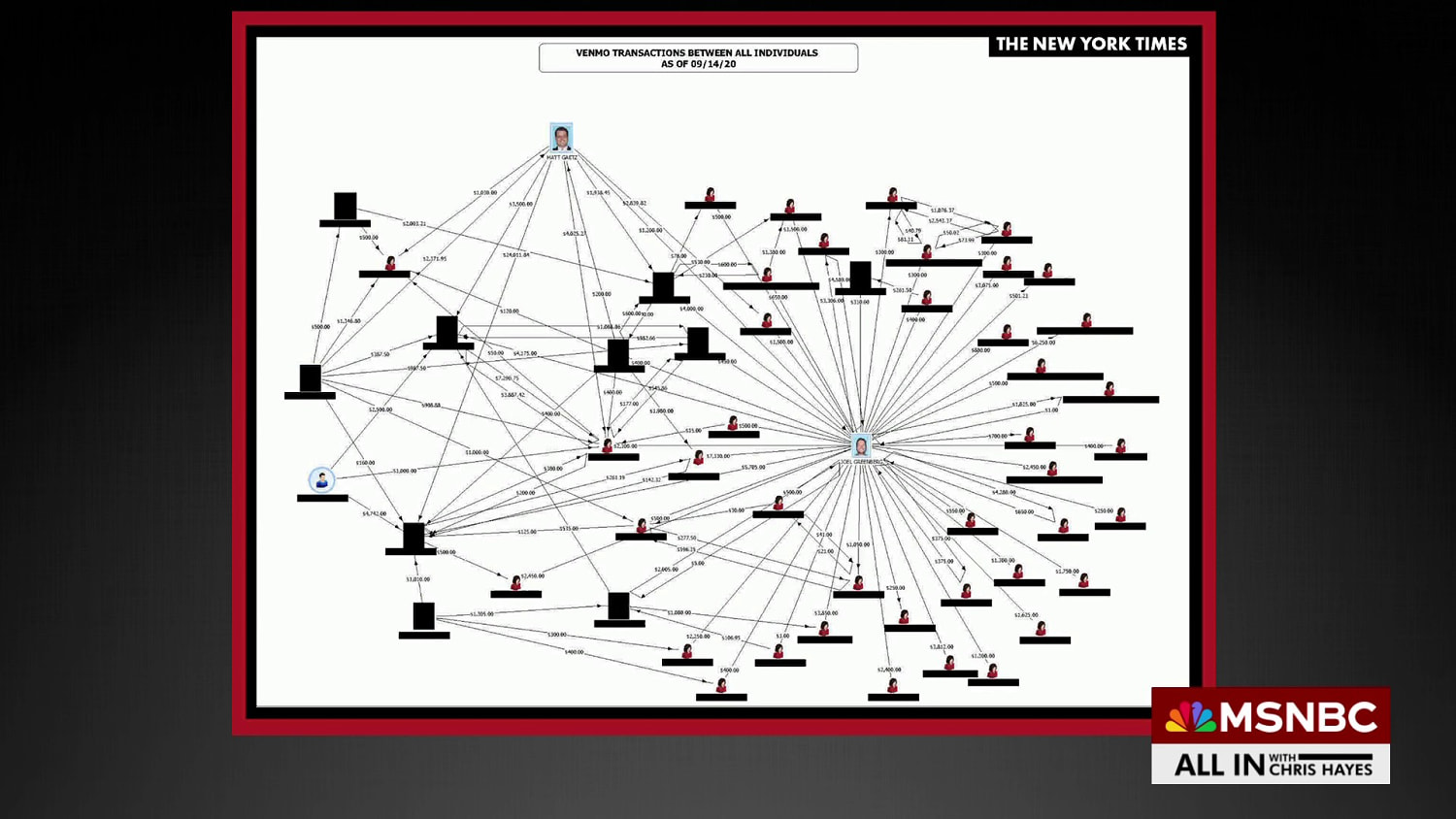
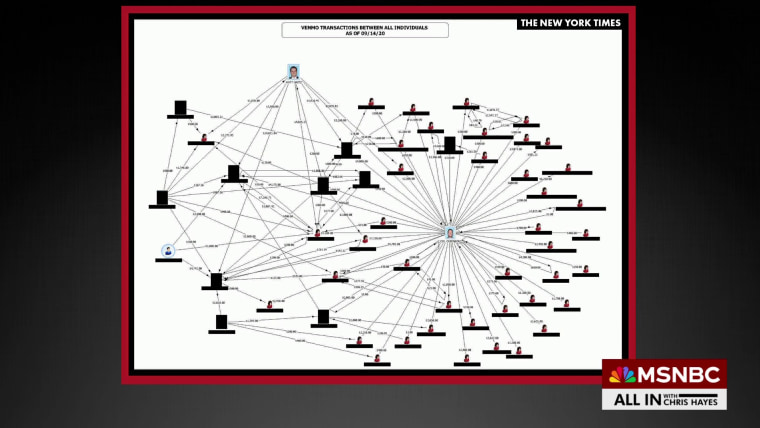
-
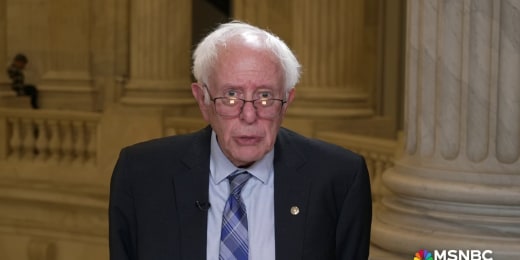
Bernie Sanders: No ‘blank check’ for Netanyahu
08:08
-
Now Playing

-
UP NEXT
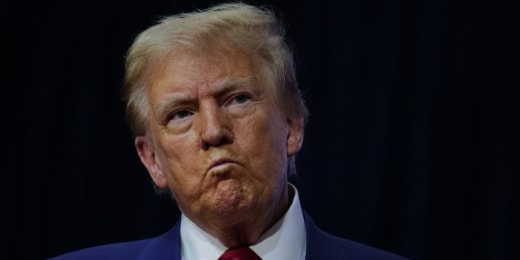
‘Terrible consequences’: New bill would grant Trump a ‘frequent tool of dictators’
07:32
-
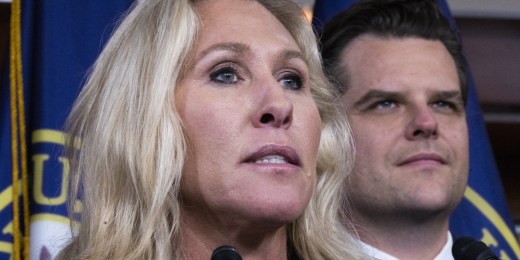
Marjorie Taylor Greene threatens GOP colleagues over Gaetz report: ‘Let’s all dance’
07:55
-
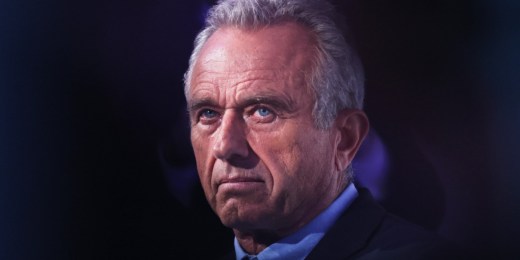
‘Terrifying’: Ex-HHS Secretary calls RFK Jr. pick ‘life or death situation’
05:41
-
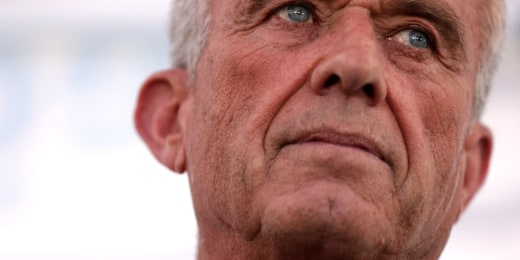
RFK Jr. poses threat to health establishment—and public health itself
08:44
-

Aaron Rodgers moment perfectly sums up how fake information spreads
03:24
-
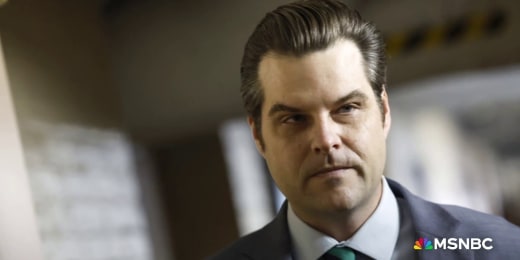
Gaetz pick is like Trump’s ‘fraternity hazing ritual’ for Senate GOP, says Hayes
11:23
-
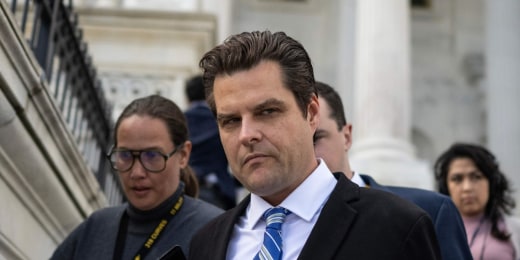
Trump shocks with ‘unanimously loathed’ Matt Gaetz as attorney general pick
10:34
-
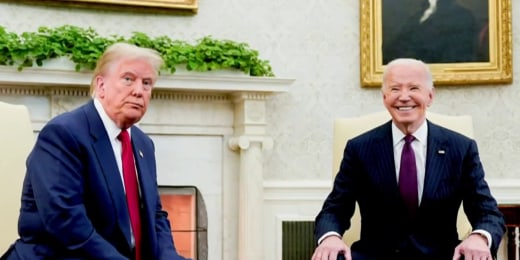
‘Tough to watch’: Why the Biden-Trump White House meeting was ‘pretty enraging’
04:55
-
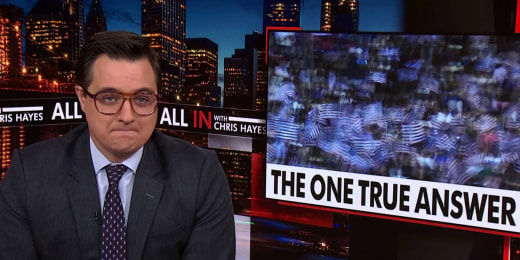
Don’t be bamboozled by these election postmortems, warns Hayes
04:18
-
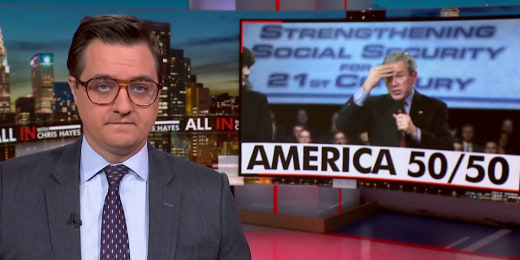
‘Radioactive’: Why Trump’s win isn’t a ‘mandate’ for the unpopular MAGA agenda
09:43
-
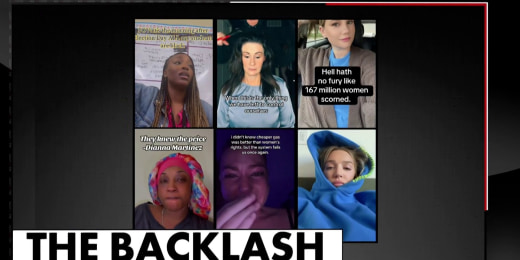
‘Your body, my choice:’ Women enraged by emboldened MAGA misogynists
11:58
-

‘Power grab’: Elon Musk sets stage to act as Trump’s ‘co-president’
07:00
-

Sarah McBride, first openly trans member of Congress: ‘Incredibly grateful’
07:13
-
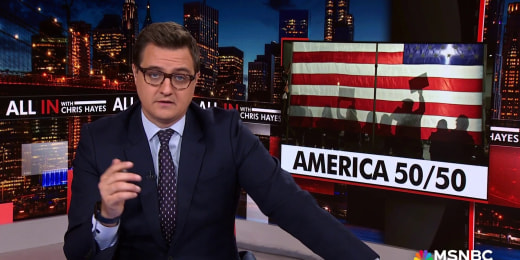
Chris Hayes lays it out: ‘America didn’t give itself over to Trumpism’
09:42
-
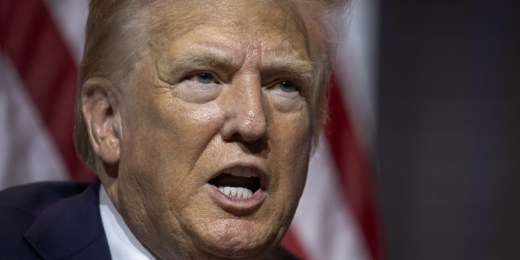
‘We must protect our core’: Civil rights lawyer reacts to Trump win
09:01
-
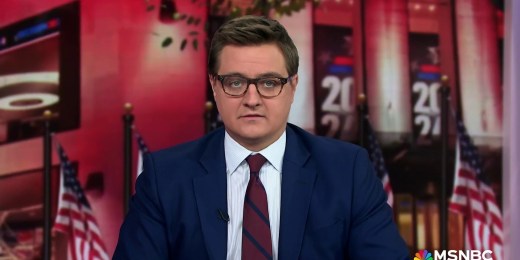
‘Pry them from our hands’: Chris Hayes shares post-election message
06:31
-
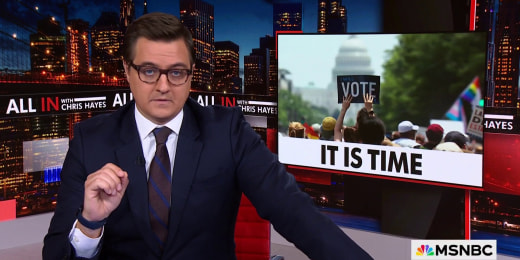
‘No matter who wins’: Chris Hayes shares final thoughts before Election Day
05:12
-

‘Frankly, I’d rather be us right now’: AOC and Shawn Fain on final 2024 stretch
08:26
-

Bernie Sanders: No ‘blank check’ for Netanyahu
08:08
-
Now Playing

Bombshell NYT report reveals ‘trail of payments’ from Gaetz to women
06:33
-
UP NEXT

‘Terrible consequences’: New bill would grant Trump a ‘frequent tool of dictators’
07:32
-

Marjorie Taylor Greene threatens GOP colleagues over Gaetz report: ‘Let’s all dance’
07:55
-

‘Terrifying’: Ex-HHS Secretary calls RFK Jr. pick ‘life or death situation’
05:41
-

RFK Jr. poses threat to health establishment—and public health itself
08:44
The Dictatorship
Trump sold mass deportations as an economic bonanza. Here’s the truth.
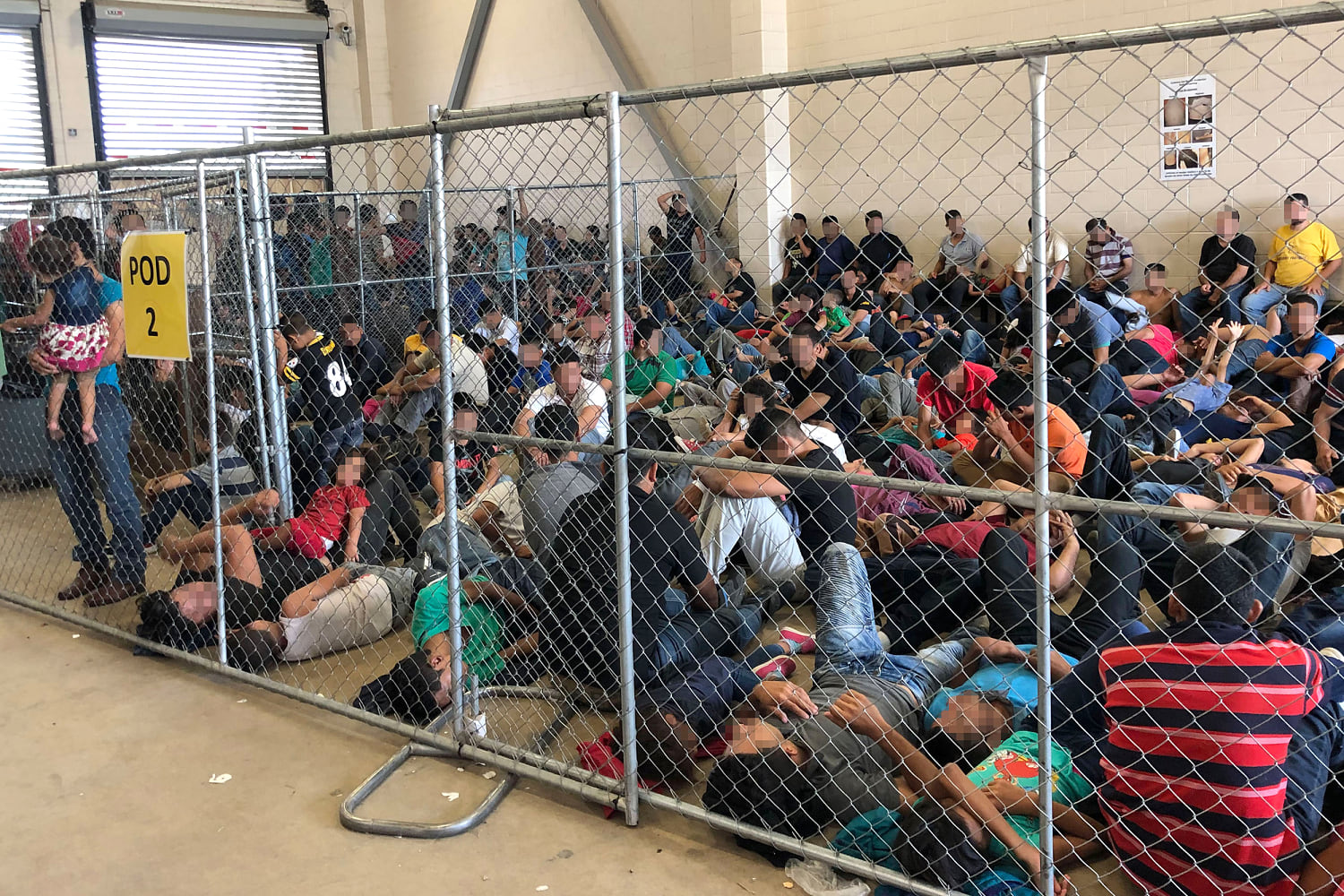
In a recent CBS News interview, incoming “border czar” Tom Homan was confronted with the question of whether the benefits of mass-deporting millions of undocumented immigrants were worth the cost. He responded with a question of his own, “What price do you put on national security?”
It’s a question that Americans might be asking pretty soon themselves. Is the price of deporting millions of undocumented immigrants worth the cost?
Undocumented immigrants are far less likely to commit crimes than native-born Americans.
During the 2024 presidential campaign, President-elect Donald Trump described crackdowns on illegal immigration as an essential tool for reducing crime, increasing employment and even lowering housing costs. Never mind that undocumented immigrants are far less likely to commit crimes than native-born Americans and that the threat to national security from their presence in the country is minimal at best.
What was omitted from Trump’s anti-immigrant diatribes were the significant economic costs of deporting millions of undocumented immigrants — and the meager benefits.
According to one estimate from the pro-immigration advocacy group American Immigration Council, arresting, detaining and deporting the 13.3 million people who are either in the United States illegally — or are in the country temporarily without legal status — could cost $315 billion.
Trump campaign officials have said they don’t intend to deport every undocumented immigrant in the country immediately. Considering that the U.S. has never deported more than a half-million people in a single year, it would likely be impossible.
However, even deporting 1 million people yearly could cost nearly $90 billion. Apprehending immigrants, detaining them, court procedures and transporting them out of the country makes mass deportation a complicated and costly endeavor. Indeed, the estimated cost of deporting a single undocumented immigrant is estimated to run as high as $13,000.
Trump has said as recently as this week that he wants to enlist the military in his mass deportation plans, but that is easier said than done. Trump will have to jump through various legal hoops to overcome the impediments to using the uniformed military for domestic law enforcement. To achieve his anti-immigration goals, Trump will likely need Congress to authorize billions of dollars in new spending and hire tens of thousands of new government employees.
Let’s suppose, for a moment, that Trump is actually successful at getting the mass deportation project off the ground. In Trump’s words, there can be “no price tag” on such an effort. In reality, there is a price — and it will quickly be felt by American consumers.
To achieve his anti-immigration goals, Trump will likely need Congress to authorize billions of dollars in new spending.
Today, undocumented immigrants represent 5% of the U.S. workforce, and because two-thirds of them are between the ages of 25 and 54 (compared to less than 40% of the U.S.-born population), they are overrepresented in the workforce.
Many undocumented immigrants take on dangerous, menial and low-paying jobs. They are maids and housekeepers, construction laborers and agricultural workers. Indeed, a whopping 45 percent of agricultural workers are undocumented along with 15 percent of construction workers.
If millions of undocumented immigrants are forced to leave the country, these industries will bear the brunt — as will consumers.
Even if they aren’t deported, fear of getting caught up in workplace raids might push some of the undocumented to no longer show up for work. Either way, farms, construction companies and restaurants may find themselves short-staffed and unable to bring on new workers at a time of low unemployment.
Whatever the case, the labor disruptions will almost certainly lead to higher prices on everything from food to housing. And working class Americans — many of whom voted for Trump — will get hit the hardest.
Moreover, if restaurants are losing cooks and busboys and construction companies can’t find laborers, other native-born Americans such as waiters, construction managers, and architects will be directly affected as businesses shut down or take on fewer projects.
In his acceptance speech at the Republican National Convention, Trump said, “Americans are being squeezed out of the labor force, and their jobs are taken.” That’s not really true, since the undocumented often take on jobs that most native-born Americans simply don’t want. If Trump is successful at deporting millions of undocumented workers, his words will be prophetic; tens of thousands of Americans may soon find themselves out of work.
There are other indirect costs that many Americans who voted for mass deportation probably didn’t consider. For example, many undocumented immigrants work in child care. If they are forced to leave the country, the number of women in the labor force could decrease.
Then there are the tax implications. In 2022, undocumented immigrants paid close to $50 billion in federal taxes and nearly $30 billion in state taxes. They also contributed more than $28 billion to Social Security and Medicare (even though they don’t benefit from those programs).
Migrants are also consumers. Removing them from the country means decreased spending, further undermining the economy.
By nearly any appreciable measure, immigration to the United States is a net economic positive, contributing to higher growth, greater productivity and even a reduced budget deficit.
Conversely, mass deportations will almost certainly lead to slower economic growth, increased unemployment and, ironically, higher inflation.
While the economic costs of mass deportation are significant, we cannot ignore the moral and humanitarian costs. Millions of undocumented Americans have native-born American children.
Migrants are also consumers. Removing them from the country means decreased spending, further undermining the economy.
Are Americans prepared to, again, watch parents ripped away from their children simply to fulfill Trump’s campaign promise? There are undocumented immigrants in practically every community in America. They are neighbors, friends, little league dads and soccer moms. Will Americans who voted for Trump be as blasé about the impact of mass deportation when it directly affects those they know personally?
Mass deportation might be popular on the campaign trail but in practice it is a recipe for an immediate and significant political backlash.
As much as many Trump voters say they wanted mass deportation, few seemed to understand or appreciate the ultimate consequences.
In short measure, they’re about to find out.
Michael A. Cohen is a columnist for BLN and a Senior Fellow and co-director of the Afghanistan Assumptions Project at the Center for Strategic Studies at the Fletcher School, Tufts University. He writes the political newsletter Truth and Consequences. He has been a columnist at The Boston Globe, The Guardian and Foreign Policy, and he is the author of three books, the most recent being“Clear and Present Safety: The World Has Never Been Better and Why That Matters to Americans.”
-
Congress1 week ago
Trump’s border czar promises ‘hell of a lot more’ deportations than first term
-

 Politics1 week ago
Politics1 week agoDonald Trump has weaponized ‘main character energy’
-
Health Care2 weeks agoAnti-abortion forces broke the left’s post-Roe winning streak, but 7 more states enacted protections
-
Environment2 weeks ago
Ex-energy regulator says he offered Trump team plan to cut his old agency
-

 The Josh Fourrier Show1 week ago
The Josh Fourrier Show1 week agoDOOMSDAY: Trump won, now what?
-
Economy2 weeks ago
Fed moves to protect weakening job market with bold rate cut
-
Congress1 week ago
Biden says farewell to the armed services in Veterans Day address
-
Environment1 week ago
A Chinese solar giant came to America for a Biden windfall. Then Trump won.


